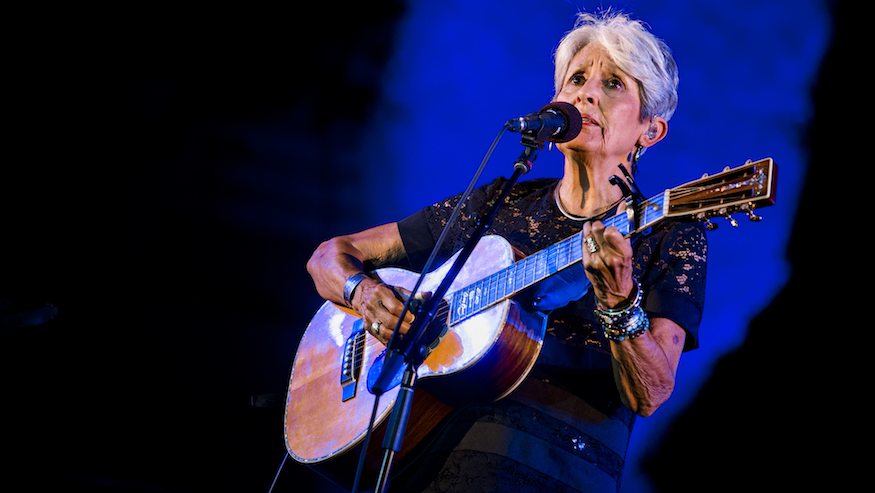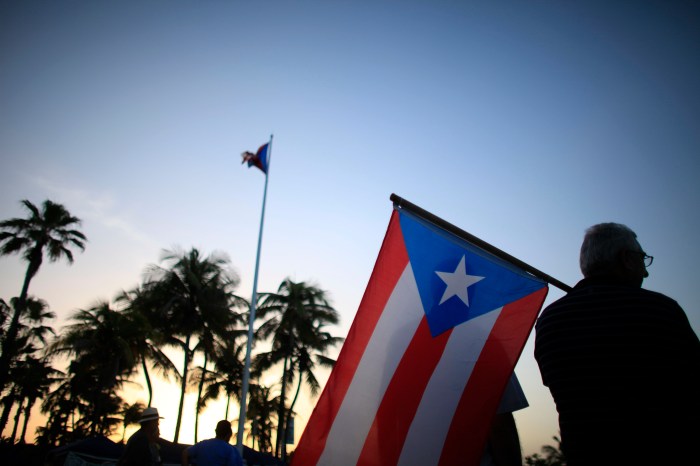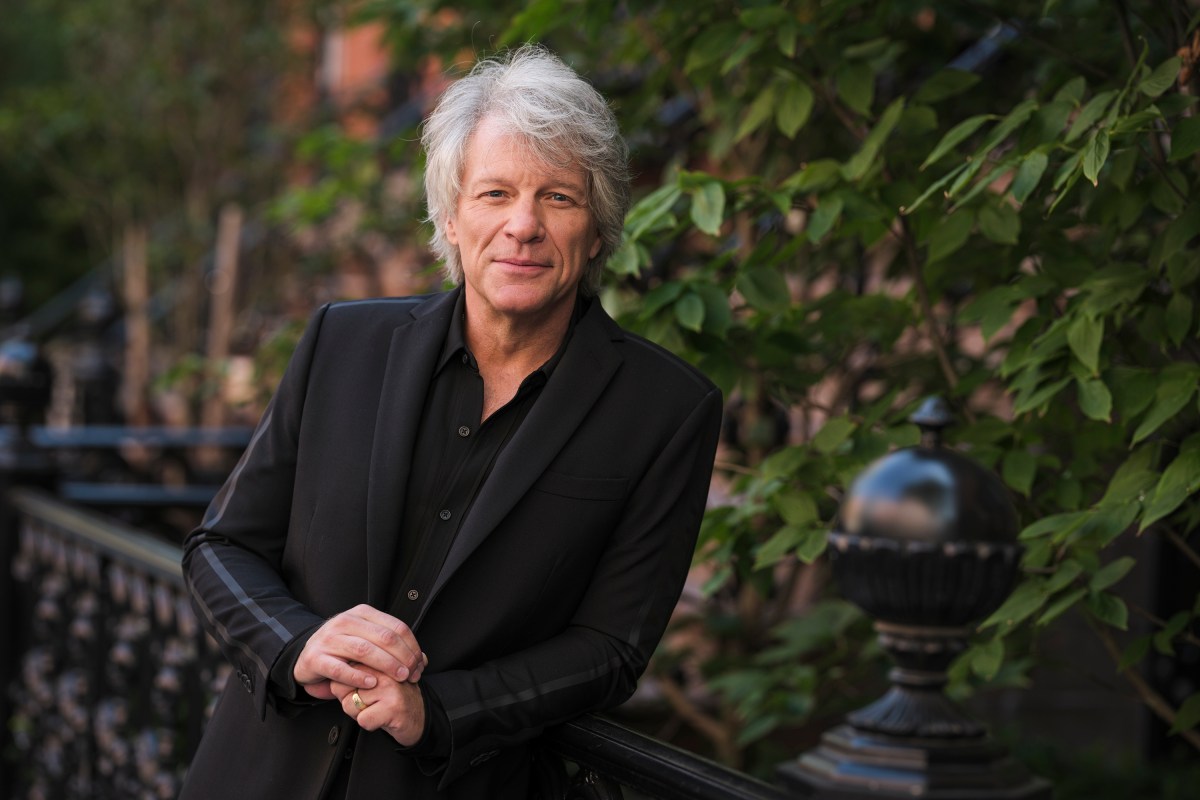Rock and Roll Hall of Famer. Protest folk icon. Those two titles don’t fully cover the impact that legendary folk musician Joan Baez has had on American music. At age 78, Baez has been writing and performing for nearly six decades, with songs that have spoken truth to power and have been etched into the fabric of our country’s DNA.
2018 was a truly landmark year for Baez. After releasing her fantastic Grammy-nominated album “Whistle Down the Wind,” which was her best-charting album since 1975’s classic “Diamonds and Rust,” Baez announced that she will be officially retiring from music. She will be playing her final area performances this week including one at the Beacon Theatre on Wednesday. We spoke with the legendary singer about what it means to be playing her final shows in the area and about passing the baton to a new generation of socially conscious musicians.
Bringing songs to the people is a big part of the folk tradition that you had a hand in creating. Was the decision behind making this your final tour a difficult one?
It was a slow process and it kind of had to wait until I was really there. I think it has to do with 60 years of doing it [laughs] and having it be so difficult to keep my voice going. Then there are other things. I started to paint. I started to realize how nice it was to be at home for more than a few months at a time. I thought, “Okay, 78. It’s time to wind down.” I took a year and a half to do that and now I know I’m in the right place. Even though there will be a lot of sadness involved, there will be a lot of relief involved.
You are currently touring behind the 2018 album “Whistle Down the Wind,” which is fantastic. Will you still plan to record and play occasional shows?
I don’t think so. It took a switch of energy and the energy isn’t going in that direction now. I’m more into painting and other mundane things. If I can’t get excited about learning new songs and making albums, then there is no point in doing it. I’m just really happy that was the last album because I’m really proud of it. It’s a good way to go out.
The era of folk singers whom you cut your teeth with helped to usher in a new breed of socially conscious musicians that have told truth to power and helped mobilize people to make a change. Do you see this tradition being shown in young artists today?
I think there are a lot of them. I think that one of the stumbling blocks is trying to be what we were in the ’60s, and that’s something that really can’t be duplicated. So it is hard for us to know right now what songs are being written because there’s not exactly a big platform. In this political atmosphere, you really have to battle to be heard. So, I don’t think we really know what’s out there.

You were born on Staten Island. Playing your final New York show at the Beacon Theatre must feel special for many reasons.
Well, I didn’t grow up on Staten Island. I was born there. I am a Californian now. But still, yes, of course, New York and the Beacon is a teensy bit overwhelming [laughs].
With such a deep wealth of a catalog to choose from, do you have a specific arc that you are taking with these last shows?
What we did was we started off this tour in the Deep South in Selma and Birmingham, because I hadn’t done that yet on this final tour. It was very emotionally important. I realized the subject matter is so important because it is all about racism. So, I’m taking that whole concert with me. It’s a different theme of a concert, which is nice because it keeps it fresh. But it’s also nice to be able to talk about those things in the North, and everywhere, because racism is pervasive.

















